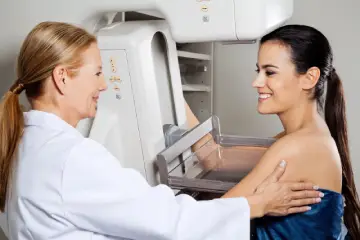Tubal Ligation
Tubal Ligation Q & A
What is tubal ligation?
Tubal ligation, often referred to as female sterilization or “getting your tubes tied,” is a surgical method used to permanently prevent pregnancy. The term “tubal” describes the fallopian tubes that transport an egg from the ovary to the uterus each month, while “ligation” means tying or sealing them.
During this procedure, your surgeon at The Women’s Center cuts, ties, or otherwise blocks your fallopian tubes. This blocks eggs and sperm from traveling through the tubes, preventing the fertilization necessary for pregnancy. However, this doesn’t affect your menstrual cycle.
Tubal ligation doesn’t protect you from sexually transmitted diseases (STDs), so you still need to use a latex condom to prevent infection.
Why would I get tubal ligation?
Tubal ligation is one of the most common methods of female sterilization. You may want to consider this procedure if you’re 100% sure you don’t want to get pregnant for the rest of your life.
Sterilization may not be the best option if you think there’s a chance you may want to have children in the future. There are surgical procedures to reverse tubal ligation, but only about 50%-80% of women have success getting pregnant this way.
The best way to determine if tubal ligation is right for you is to discuss your concerns and desires with your provider at The Women’s Center. They explain the risks and benefits of the procedure so you can make an informed decision.
What are the risks of tubal ligation?
Though tubal ligation is generally safe and effective, about 1 of 200 women still become pregnant after the procedure. Other risks associated with tubal ligation include:
- Reaction to anesthesia
- Pelvic or abdominal pain
- Improper healing or infection
Serious complications of tubal ligation are rare, affecting less than 1 in 1,000 women. Certain factors, such as being obese or having diabetes, may increase your risk of complications.
What should I expect from a tubal ligation procedure?
The team at The Women’s Center develops a personalized plan for tubal ligation that caters to your particular needs. In most cases, they perform tubal ligation with a laparoscope, or thin specialized instrument that requires only a small incision.
They can perform this procedure immediately after vaginal childbirth or during a Cesarean section. Otherwise, you can schedule an outpatient procedure at The Women’s Center. Call or book an appointment online today.
We Provide You With The Best Services

Mammogram
Learn
More
Routine mammograms are the best way to find breast cancer early when it’s most treatable. The expert OB/GYN team at...




